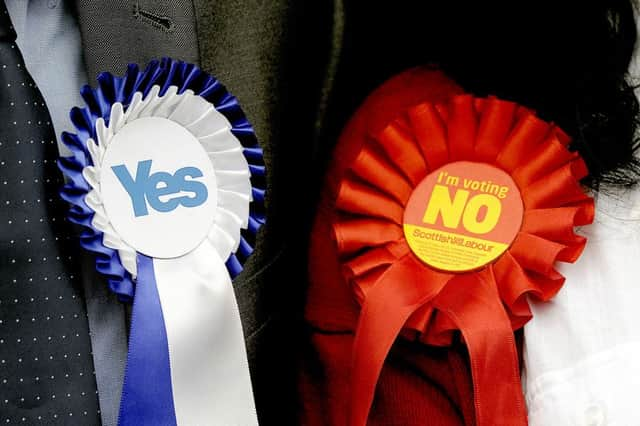Leader: Same old question for new referendum


In a sense, we could be returning to that debate sooner than expected, and the issue presents the same difficulty that caused so much concern during the independence campaign, namely a demand for clarity, and if at all possible, certainty. Both tended to remain out of reach.
Nicola Sturgeon will today make the “positive case for continuing EU membership” in a speech delivered in Brussels, as she outlines the Scottish Government’s position on an in/out EU referendum. The First Minister will highlight what she considers to be Scottish priorities within the EU, and how to make required reforms within the existing Treaty.
Advertisement
Hide AdAdvertisement
Hide AdBut, as she argues that continuing EU membership is vital to the Scottish economy, the question remains: what are the implications for Scotland if the UK chooses to leave the EU?
The referendum is UK-wide and therefore the result should be respected in all parts of the country. But Ms Sturgeon has already suggested that an overall exit vote in the face of Scotland voting to remain within the EU could be considered a “material change of circumstances” in terms of sparking a second referendum on independence.
So the first clarification we need on Europe is: what level of support for the EU in Scotland, set against an exit vote elsewhere, would constitute “material change of circumstances”? A simple majority of 51 per cent? A clearer 60 per cent? Or maybe an overwhelming 70+ per cent?
The next clarification we would require takes us back to last year.
What guarantee can the SNP offer that seeking independence because of a UK exit would allow Scotland to return to the EU table?
It would require a big leap of faith to believe that an exit from the EU could be reversed by making a further exit from the UK. The danger is obvious: Scotland ends up high and dry, having kissed goodbye to two major trading partners.
The responsibility for clarity over what an exit vote would mean does not just rest with Ms Sturgeon. It is also a matter for the UK government, to spell out clearly what a vote to leave the EU would mean for Scotland, if indeed Scotland preferred to stay within the EU.
A failure to prepare for a potentially serious disparity between north and south would potentially mean Scotland going in to another referendum sparked by Europe but unsure as to where it stood in Europe.
Another ‘friendly’ blunder by SFA
Advertisement
Hide AdAdvertisement
Hide AdIt is one of the darkest days in the Scottish Football Association’s history but it is not widely known, coming as it did in an era when media coverage was relatively modest, and even more scant when it involved a trip to South America for a match that was so low-profile that it wasn’t even televised.
When the Scotland team arrived in Santiago to face Chile in 1977, they took the field at the national football stadium which four years earlier had been used as a detention camp. Murder, execution and torture took place at a location where our national association would soon afterwards decree it acceptable for Scotland to play a meaningless friendly match. It was a terrible error of judgment.
This week’s match against Qatar does not present such a chilling scenario, but against a backdrop of human rights issues over the treatment of migrant workers in Qatar, it is another example of a witless political blunder, in the name of a meaningless friendly match.
Yesterday, the SFA was at pains to stress that the sporting fixture should be separated from the “serious human rights” issues in Qatar, as it sought to justify the decision to host the match. Yet the national governing body has also been in contact with Amnesty International to explain its position. This would not be necessary if there was no case to answer.
There are occasions in football where competition – such as the World Cup – forces nations to play against other nations they would rather not encounter or legitimise. This is not one of those situations; this fixture was a matter of choice, and the SFA has made another bad one.